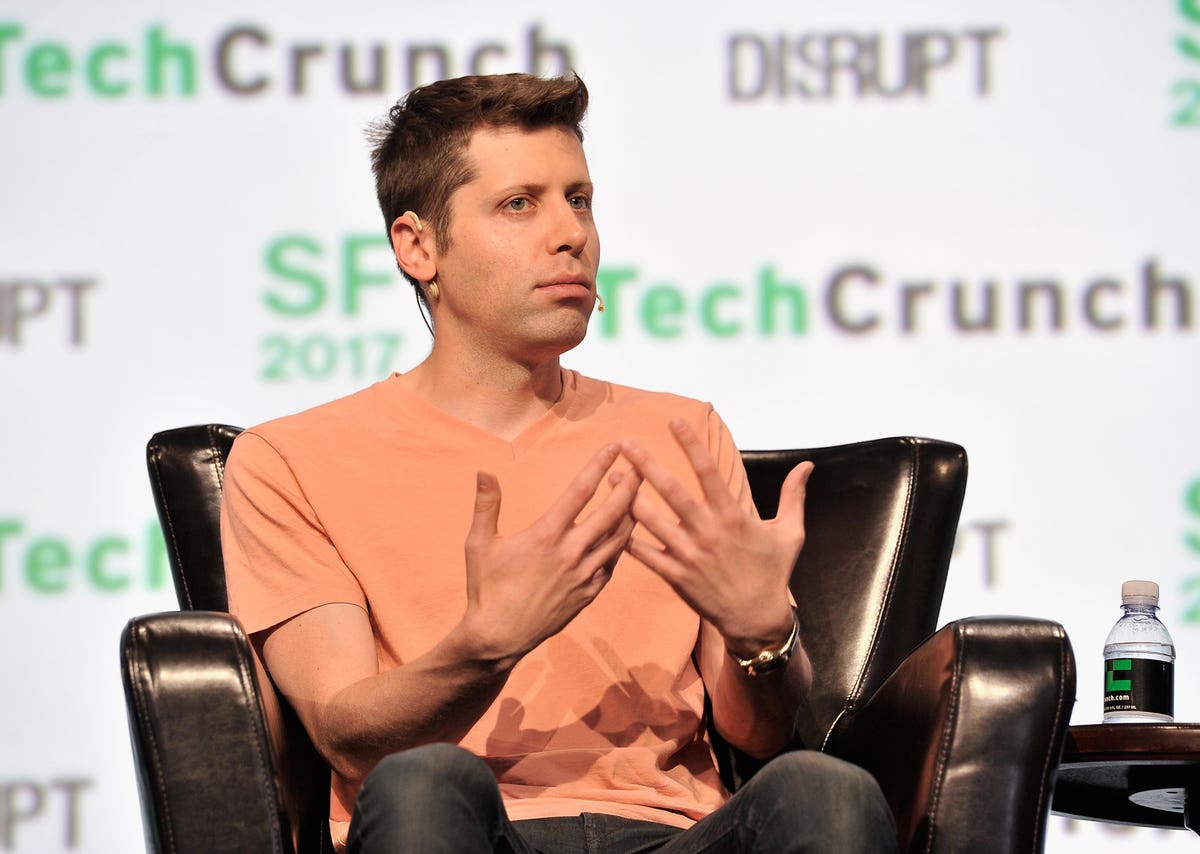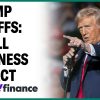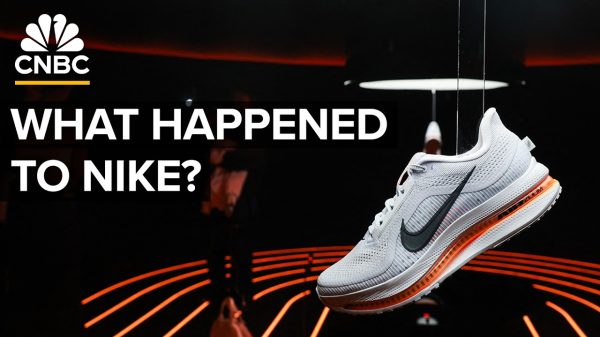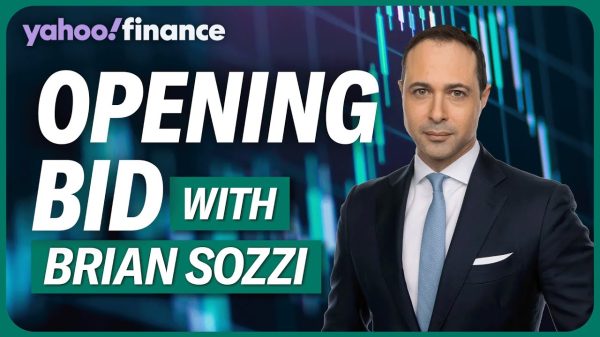Key takeaways
- CEO of OpenAI, Sam Altman, is testifying before Congress to decide the first steps in AI regulation
- Several AI leaders, including billionaire Elon Musk, have called for AI laws to be introduced sooner rather than later
- AI regulation marks a big opportunity for the US to become a world leader in AI tech, which is good news for investors
Today, select US Congress members will hear from possibly the biggest player in AI right now: OpenAI CEO Sam Altman, the company who created ChatGPT. The hearing is intended to be the first step towards regulation for AI, which many have called for and some argue is already far too late.
Regulating a new technology that could eventually outsmart us? A no-brainer if AI companies want to carry on developing the tech. But there’s an upside to lawmakers closing in on AI, which will make Wall Street happy in the long run. We’ve got the details on why the hearing is happening and what we could see from AI regulation.
Want to harness the power of AI for investing in AI? Pretty meta, but Q.ai’s Emerging Tech Kit lets you do just that. The AI looks for the top-performing tech stocks and ETFs by scanning through reams of data so you don’t have to. It then switches up the holdings’ weights when required, helping maximize your investment.
The Kit also benefits from the optional Portfolio Protection, which is Q.ai’s secret weapon to help guard against market volatility. The AI looks for risks in your portfolio and then activates defensive hedging strategies to help ringfence your returns.
Download Q.ai today for access to AI-powered investment strategies.
Who is Sam Altman?
CEO of OpenAI, Sam Altman, has enjoyed a meteoric rise to fame since the launch of ChatGPT at the end of last year. It’s only been six months since the chatbot was released, but since then, it’s grown to over a billion users as of March.
Altman has tenure in making successful companies: he served as CEO of start-up accelerator Y Combinator, founded his own venture capital firm and was one of the founders of OpenAI back in 2015 before taking on the role of CEO in 2019. From there, OpenAI began its partnership with Microsoft, with the Big Tech behemoth going all-in on OpenAI this year with a $10 billion investment.
Altman has a healthy amount of fear around AI, recently stating he’s “a little bit scared” of the technology and that the company was preparing for the 2024 elections. “I’m particularly worried that these models could be used for large-scale disinformation,” he commented. Fun fact: he’s also apparently a doomsday prepper.
He and other Big Tech CEOs, including Microsoft’s Satya Nadella and Google’s Sundar Pichai, met with Vice President Kamala Harris and President Joe Biden to discuss AI ethics and regulations before the hearing.
Safety concerns around AI
The main reason Congress, and even the President, is getting involved with AI now is that while the technology is new and exciting, alarm bells from influential sources have sounded from the beginning.
Former OpenAI founder and investor Elon Musk has been a vocal critic of AI development without any guardrails. The billionaire was one of the thousands that signed the open letter from the Future of Life Institute saying AI development should immediately pause for six months to give lawmakers time to catch up.
AI development has also worried those with inside knowledge. Dr Geoffrey Hinton, considered one of the godfathers of AI, recently left Google so he could sound the alarm about the dangers of unchecked AI innovation. He believes the way forward is to “put as much effort into developing this technology as we do into making sure it’s safe”.
There’s also a lot of concern about the displacement of skilled workers with AI. A Goldman Sachs report found up to 300 million jobs could be fully automated, and two-thirds of US jobs could see some degree of automation; IBM also recently announced it was stopping hiring for some roles with a view to replace them with AI over the years.
What the AI hearing means
The hearing is led by Senators Richard Blumenthal and Josh Hawley. Blumenthal said the hearing “begins our subcommittee’s work in overseeing and illuminating AI’s advanced algorithms”, while Hawley pointed out the “implications for Americans’ elections, jobs, and security”.
So, they seem to get the potential impact advanced AI could have on society. But a key pitfall we’ve seen over the years with Big Tech regulation is that the law doesn’t move quickly enough. Another layer of complexity is that there is literally no existing framework elsewhere for AI regulation: the EU has recently moved forward with the European AI Act, but it’s nowhere close to becoming law.
As for the big players’ share prices, Google and Microsoft are largely unchanged ahead of the hearing – a good sign investors aren’t phased by how it might turn out.
From an investor perspective, if the US can get the jump on regulating AI, it would be a key driver for innovation. AI companies would breathe a sigh of relief that they were operating within official boundaries, potentially driving an avalanche of investment into the US – and the stock market. The Goldman Sachs report predicted AI tech could add $7 trillion to the global economy in a decade, should everything go to plan.
Plus, the safety blanket AI regulation would add to public perception and adoption could be immeasurable. If Congress can get AI companies in line now by securing worker rights and introducing AI upskilling programs, Americans’ perception of AI could be transformed.
It’s a lot to ask, but the US has a golden opportunity right now to set the pace and have its economy benefit massively as a result.
The bottom line
Today’s Congress hearing marks a first step towards lawmakers understanding exactly what needs to happen next. We can’t have a Wild West of AI where bad actors use the tech to swing elections and manipulate the masses, so regulation is required and welcomed by those in the industry.
Because we know a world where AI helps at work instead of costing human roles, has guardrails on from the beginning and ultimately grows the global economy is the optimal future for AI companies. After today, it’s up to Congress to make that a reality.
AI has the potential to transform the global economy. Get a front-side seat for the investing action with Q.ai’s Global Trends Kit, which is designed by humans and runs on an AI algorithm with plenty of checks and balances in place. The AI looks for global assets like commodities, stocks and bonds to find the top performers each week by sifting through massive amounts of data.
From there, the AI readjusts the holdings as needed to help you get more bang for your buck. It’s a low-risk Kit, but those wanting an even more conservative approach can turn on the Portfolio Protection tool for hedging strategies to help you keep more of your earnings.
Download Q.ai today for access to AI-powered investment strategies.
Read the full article here













